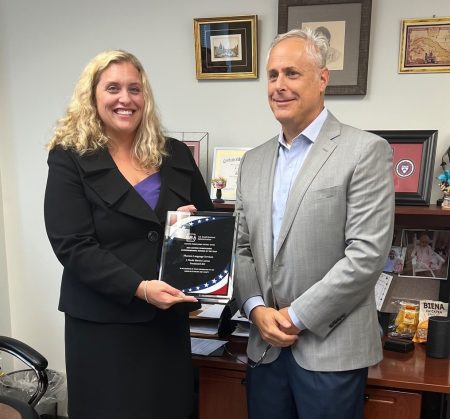When you become your own boss, you join many other business owners hoping to make their dreams come true. But being self-employed can be difficult, especially at the beginning.
While there are no guarantees in business, there are some strategies that could help you succeed, especially financially. Here are a few mistakes to avoid if you work for yourself.
1. Not assigning tasks or setting priorities
Self-employed people often do everything in their business in the beginning because of money limits. But trying to do it all alone could be a mistake, says Ronne Brown, owner of Girl CEO and Herlistic in Washington, D.C.
“We have to understand that we go fast by ourselves, but we go far as a team,” she says. For people who feel they can’t afford to delegate, Brown says to keep your expenses low until you can afford to do so.
If you do decide to delegate, it’s important to spend your money in ways that help your business grow. To do this, people should consider focusing on the business operations and systems instead of just looks, Brown says. Doing this effectively often requires setting priorities.
“In the beginning, people are always focused on the look. But that’s not what truly creates the income in business,” she says.
Brown suggests giving priority to bookkeepers and accountants, building automations or hiring someone to generate leads. Also, keep in mind that you can usually subtract the cost of contracted labor from your business taxes.
2. Not saving for retirement
Saving for retirement as an entrepreneur can easily fall to the bottom of your priority list. This is a common mistake self-employed people make, says Preston Cherry, a certified financial planner in Green Bay, Wisconsin. While it can be smart to reinvest income you generate into your business, it may be equally important to build an emergency fund with three to six months’ worth of expenses and invest in your retirement savings.
Cherry says self-employed people have multiple retirement savings accounts to choose from, including an IRA or a solo 401(k).
“Not only are you as a business owner saving for your retirement, you are also getting to deduct the contributions [for] tax planning as well,” Cherry says.
Contributions made to traditional solo 401(k)s and traditional SIMPLE IRAs can provide tax advantages like lowering your taxable income and enabling your investments to grow tax-deferred. That means your tax bill is deferred until you withdraw the money in retirement.
SEP IRAs are designed for self-employed people or small businesses with few or no employees and have similar characteristics.
3. Spending money on courses you don’t take
As a new entrepreneur, you may want to increase your knowledge to make your business more profitable. That could mean spending money on courses or training, which can sometimes cost a pretty penny. While investing in yourself can be worthwhile, you may not get a return on your investment if you don’t take the courses and apply the knowledge.
“Before you buy a course or class, make sure you are fully committed and dedicated to doing the work without making excuses,” says Brown. According to her, many people buy things with excuses in mind.
Brown suggests researching before investing in a course, especially on social media. Look for a track record of delivering results beyond just good content.
She says, “When I’m seeking mentorship or training, I look at the personal success of the person in the area where I want to grow.”
4. Not factoring in health care costs
Self-employed individuals may worry about health care, especially without employer support. A health savings account can help ease the financial burden due to its tax benefits. health savings account offers tax-free contributions, growth, and withdrawals. In 2024, singles can contribute up to $4,150, and families up to $8,300.
“No tax is levied on contributions, growth, or withdrawals,” explains Cherry.
With HSAs, contributions are made before taxes, interest grows tax-free, and eligible withdrawals are tax-free. Additionally, self-employed individuals need a high-deductible health care plan to open an HSA. Another option is to claim the self-employed health insurance deduction if eligible.
5. Lacking a clear ‘why’
Entrepreneurship can bring extra income or realize dreams, but without a clear reason, it can also drain money. Therefore, having a clear “why” is crucial, advises Cherry. A clear purpose can guide decisions during challenges.
“Entrepreneurship is not for everyone. It’s not the only path to wealth,” she adds. This article was originally published by The Associated Press on NerdWallet. More From NerdWallet
Americans Are Living Farther and Farther From Their Workplaces
Mega Millions Jackpot Reaches $687M Ahead of Friday’s Drawing
Smart Money Podcast – Elevate Your Family & Group Getaways: Get Travel Deals with Smart Planning and Points
The article 5 Financial Mistakes to Avoid When You Are Self-Employed originally appeared on NerdWallet.









